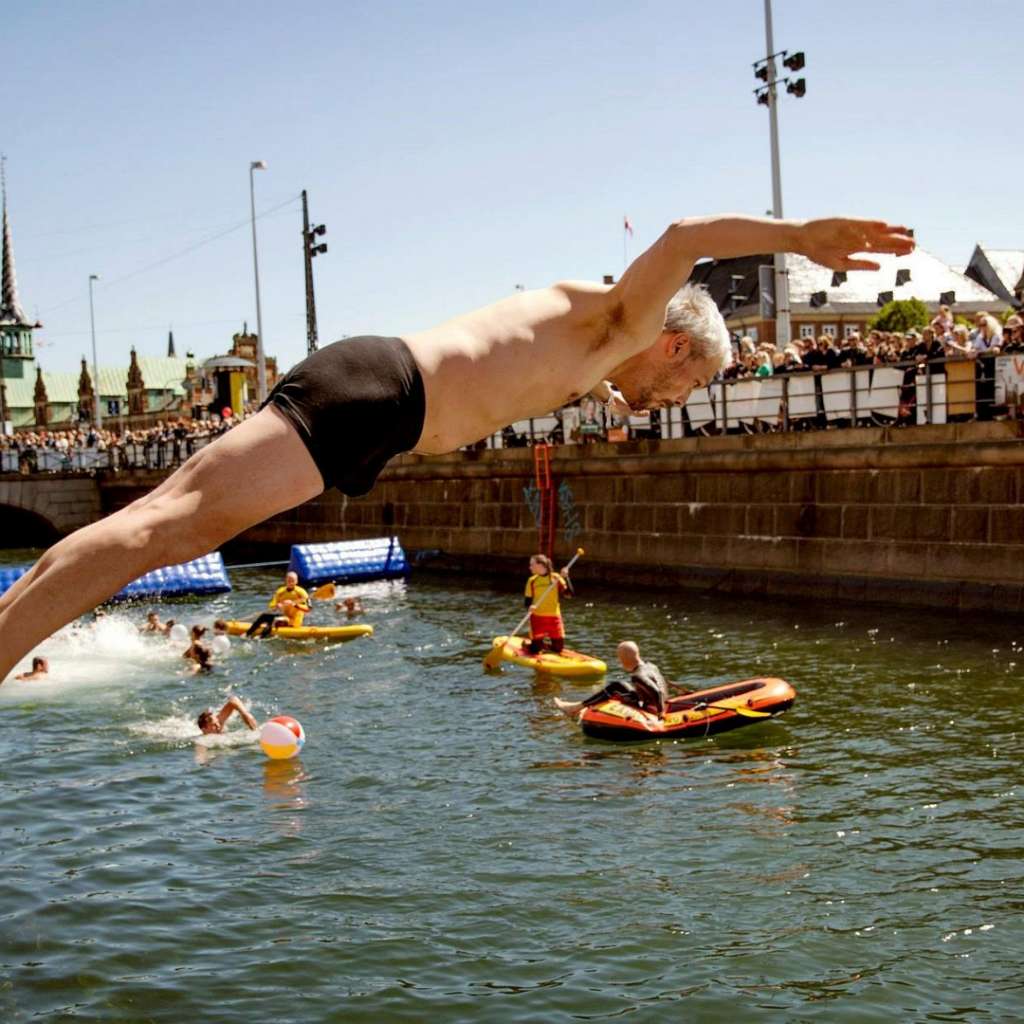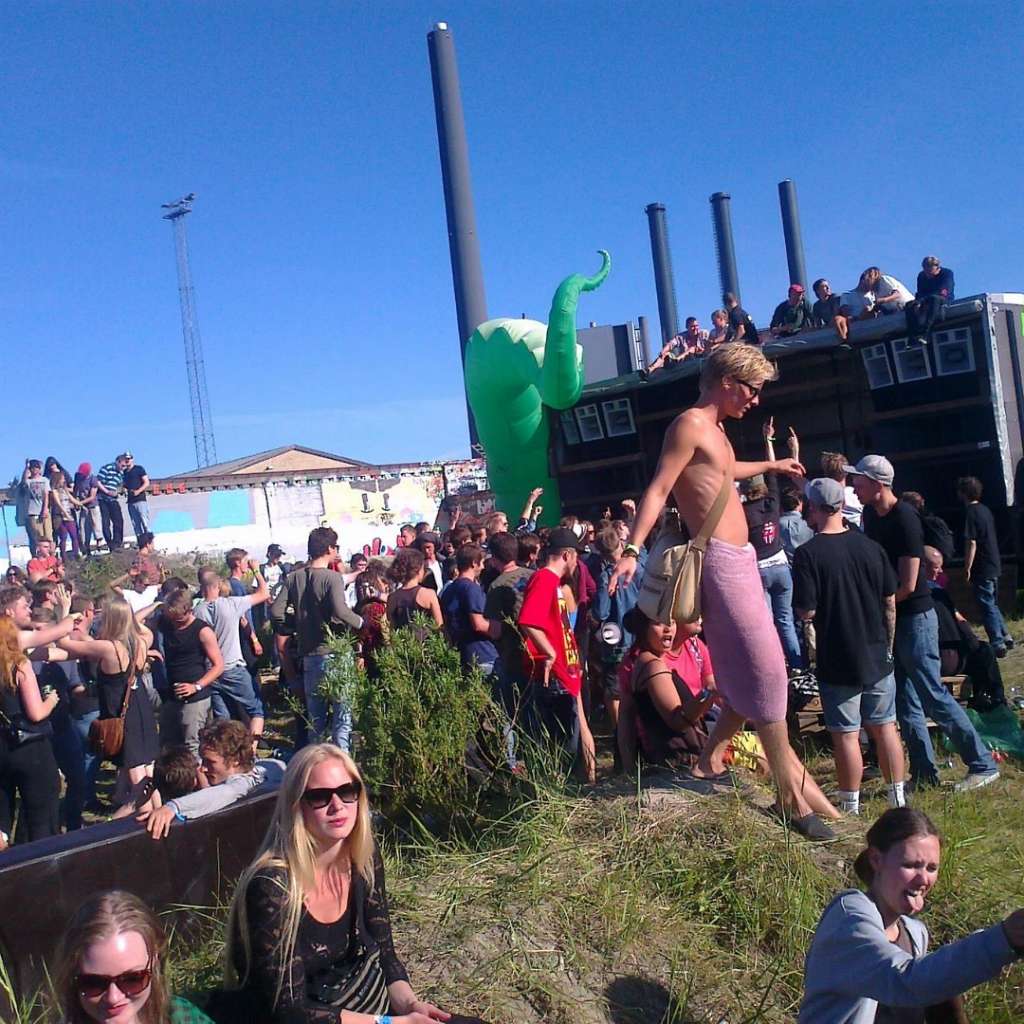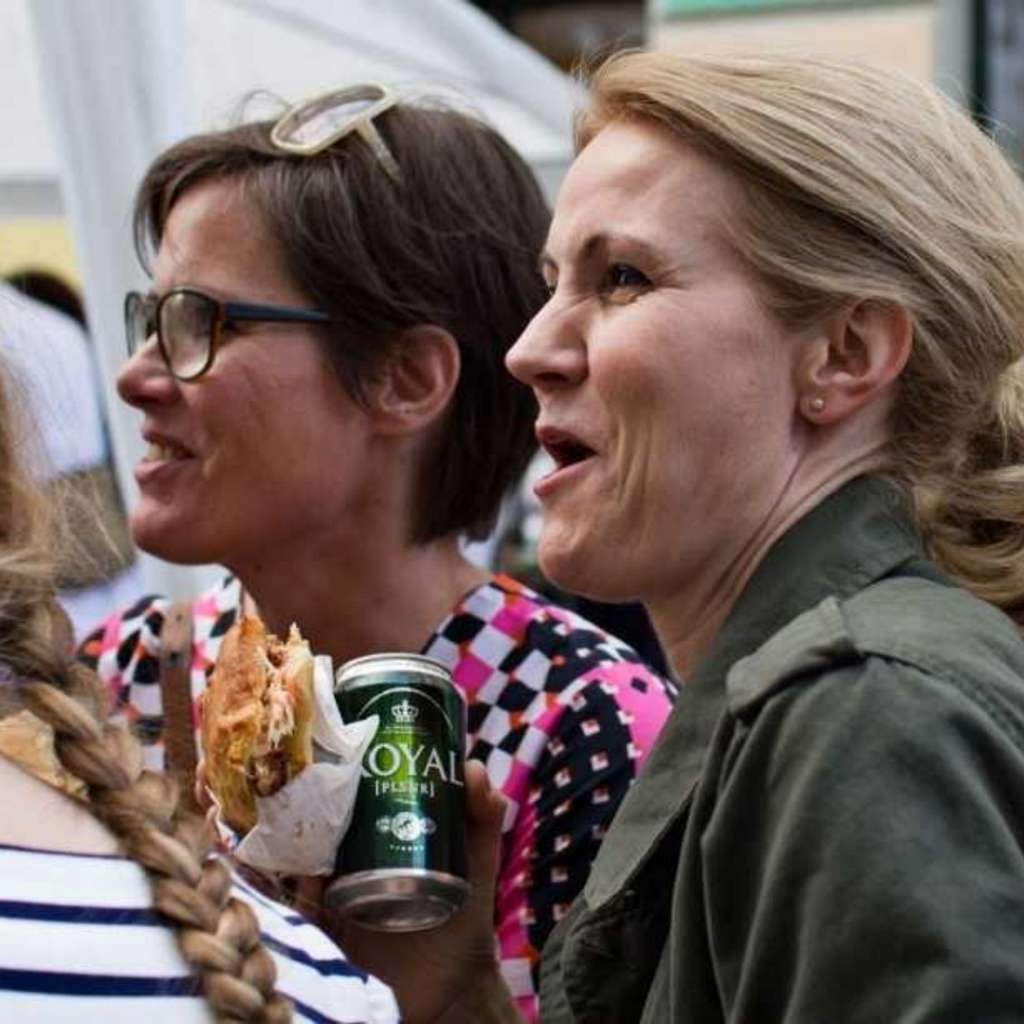Guest blog by Thomas Fleurquin, Distortion Festival Founder and Director
Here is a blog entry where I try to lay some of our core values, a few historical landmarks and anecdotes from our wild journey…
THE BEGINNINGS
Copenhagen Distortion started in 1998 as a radical experimental festival. Our tagline was “A Celebration of Copenhagen Nightlife” already then – but really it could have been “move fast and break things” (a slogan Mark Zuckerberg made up for Facebook, ca. 10 years later – a good way to describe the angry-ass attitude of the restless entrepreneurs that won’t accept any norms). For many years, I didn’t pay sincere attention to our music profile: it had to be fresh, of course, but all I cared about was the setting of the party – and its energy. I felt my mission was to break the boundaries of the traditional music / clubbing experience. From the very beginning the idea was to create the perfect night, including preparty, dinners, transfers, breaks, peaks and afterparty, into one choreographed multi-location experience. The format of the “music venue” (which I found almost as boring and static as the “art museum”) had to be disrupted. From the start, we included intermezzos in the streets, bus shuttles between venues, boat parties in the canals: The whole city became a playground!
Also, I had an intense, almost revolutionary energy to democratize the arts: the original Distortion enemy was snobbery, pretentious aficionados who sucked culture of its essence for “social distancing” from the masses. I was radical with the purpose of music and arts: to unite people, and that the (otherwise popular) idea of anything “exclusive” was pure evil. Of course, the horrible snobs whose purpose in life is to distance themselves from normal, uneducated people hardly exist – most people just want to have a good time – but having a defined enemy helped me in my quest to give a platform to underground noise labels as much as to the more mainstream dance parties. These are all things I am saying now, looking back, trying to analyze – I had no self-consciousness on any level, back then. In fact, it was just about having as much fun and behaving as untamed as possible.
EARLY DAY ANECDOTES
We were the embodiment of the fearlessness of the youth. For example, on the day of the very first Distortion, in 1998, we crashed a pirate party in a Burger King: that is, we sent our guests to a record release party that happened at a Burger King without Burger King’s consent – nor the organisers of the pop-up event. In the same period, at one of our first mobile events, we rented two double-decker buses: one to be hosted by a bunch of drag-queens / kinky cabaret, the other with some kind of “action-theatre” on the theme of trucking & white trash. But we did not sell enough tickets – so instead of running the show with two half-full buses, we decided on the spot to merge the two buses, including respective crowds and entertainment. The “Truckers & Fuckers” Bus became legend thanks to: trucker-poetry, giving bondage of the ‘Little Mermaid’ (the national symbol of Denmark AND an iconic statue for anti-establishment vandalism in the art world), which happened to get recorded by some national TV show from Holland, the Fuckers incited an interactive games with the audience: “steal a dildo from a porn-shop” on Istedgade (red light district), there was trucker-strip tease – and a real fight between the Truckers and the Fuckers over the microphone. I don’t even know if it was real or if they both played roles, in fact. Ah yes, my mother was in the crowd and a Mexican guy who became my best friend some years later, dressed as a Mexican Gladiator, was putting the heavy action on her (which I only found out by watching the footage on national tv from Holland, months later). In other words: we had a thing with randomness and an “electric chaos vibe”. It is only now, some 20+ years later, I can use civilized words to describe this. We did not consider ourselves experimental or underground or anything like this… We were simply too restless and fearless to let anything “normal” happen. Anything goes!


SOCIAL DEMOCRATIC TOLERANCE
I will argue for the rest of my life that Distortion could only be born out of the freedom that the Danish egalitarian system affords to society. The Distortion magic really comes from the fact that society and the system can tolerate this type of event: The Police, the neighbours, the politicians… I have a lot of harsh criticism of Denmark and Copenhagen and I am no longer a “blind fan” of the socialdemocratic system (still a fan, like most half-educated Europeans, but no longer blind), but I am certain that this birth was only possible because of the trust that goes both ways between the people and the system.

THE RISE
And so, our relentlessly childish event was mainly comprised of many similar events with 50-200 guests, and our projects started to include a whole generation of Copenhageners and their creative milieu, with the likes of Henrik Vibskov (a leading fashion designer in the country), Jesper Elg / V1 (main street art gallerist), Bjarke Ingels / Plot (architect of worldwide renown), Onkel Reje (made internationally famous recently for causing an attempted Google ban on national tv broadcaster DR), Hr.Skæg / Mikkel Lomborg (a very famous children’s TV host) was our resident opera singer, WhoMadeWho was our resident street orchestra (they made it big in Germany 10 years later) and we had many international names like Diplo, M.I.A., Hot Chip, Sebastien Tellier, MØ, many years before they became iconic names for their generation. We went viral between 2008 (with ca. 3.000 guests per day) and 2011 (maybe 100.000 guests per day, said Police).
I believe our success comes from being unreasonable, for as long as we could be: our first priority was – and still is – to make a party that we would ourselves like to go to. We gave it all we had and still do. We did not receive funding from the Copenhagen City Council before 2009 – 11 years after our first festival. I would say we first became professionals in the period 2015-2018, having never had the time or the self-consciousness to look up and realize what had happened, nor thinking about the help we had gotten from the public, the neighbors, the institutions, authorities and the politicians who trusted us despite our lack of “professionalism”… Now of course, I miss the rawness of the early years – the hardest thing for me is to “grow up” and be civilized about the potentials and the cultural value of the event – both to use the commercial potential but also to use the beast to nudge society in a particular direction. I would much rather change the world than to make a successful business – but these things go hand in hand…
THE EFFECT
I am still amazed when people tell me how much Distortion has meant to them in their youth. How many couples met there, got married – or divorced – due to Distortion. Many children were born, but most of all, I think Distortion gives pride to people because it is, as was my idea in the very beginning – to show that in Denmark, the system can tolerate disturbances and it is unique to be able to create such a “chaotic” event in partnerships with the authorities. Politically, I would say there are huge implications as well: does equality rise out of freedom – or does freedom rise from equality? The Distortion story seems to point at the latter… On the other hand, in my attempts to nudge society towards a “better world”, I have come to realize that few things are more democratic, give more “power to the people”, create more “progress” for society, than the projects that push freedom to its limits. In the end, our core mission, our moral duty even, is to strive to create “monumental memories”, as a curator once elegantly described our work, and to make them available to as many people as possible. But controlled and well-intended social-democracy is in over its head when it comes to creating human electricity: No randomness = no magic! And so, 22-years later, the balancing act continues – and we still don’t really know why or how, but we intend to keep pushing on limits. Many thanks for the space.
Thomas Fleurquin

